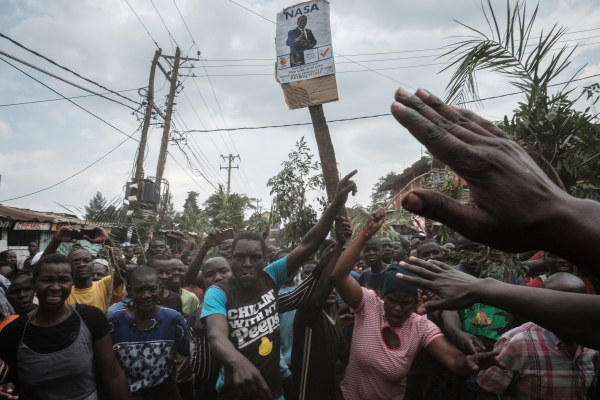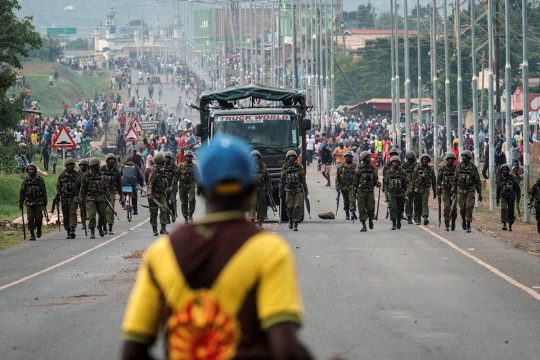The highlight of the week was undoubtedly Friday’s decision by the Supreme Court of Kenya to invalidate the August 8 presidential election, a first in Africa. Kenya’s media hailed the decision which, as said by daily newspaper The Star, "will reverberate for years to come in Kenya and around the continent". This is all the more so since President-elect Uhuru Kenyatta has accepted the decision, even if he launched a sharp verbal attack on the Court.
Representatives of opposition parties in Africa have also hailed the decision, including in Zimbabwe, Guinea and Mali. “The decision of the Kenyan Supreme Court is a historic act, and it is also a strong sign of democratic culture taking root in Africa,” said Guinean civil society leader Abdourahmane Sanoh, president of the National Platform of Citizens United for Development. “Analysing the results along with recent events in Mauritania (constitutional referendum boycotted by part of the opposition in early August) and Mali (where President Ibrahim Boubacar Keïta has suspended a referendum under pressure from the opposition), we can say that something fundamental is happening on our continent, because this example will set a precedent.”
It remains to be seen if Kenya will be able to organize a new election within 60 days under a contested electoral commission in a tense and violent political climate. Previous presidential elections in 2007 led to a wave of violence and to the indictment of President Kenyatta and Deputy President William Ruto by the International Criminal Court. The ICC finally dropped the case, but Kenyans, whilst hailing this victory for rule of law, fear fresh trouble.
As Kenyan daily The Standard wrote: "What Kenya needs most now is an election conducted in a legal, fair and transparent manner." That is not yet certain.
Gambia and Tunisia
Another possible step forward for rule of law in Africa would be prosecution of Gambia’s former dictator Yahya Jammeh, a goal of renowned American lawyer Reed Brody. He is now assisting the victims of Jammeh, who ruled Gambia with an iron fist 22 years. Jammeh is now in exile in Equatorial Guinea, a country also ruled by a dictator , but Brody, whose work brought the conviction of Chadian dictator Hissène Habré by an African Court in 2016, explains: “We showed in the Habré case, however, that when the victims tell their stories and make their cry for justice heard, they can create the political conditions even for African states to prosecute a former African leader.”
“I’m obviously in favour of Jammeh being tried in his own country in the interests of the victims and Gambian society, not in a far off place like The Hague, and not by prosecutors and judges unaccountable to the victims and the Gambian people,” Brody continues, even if he recognizes that Gambia is not yet ready to try its former dictator.
Finally, there may be new hope for women’s rights in Tunisia, where President Beji Caied Essebsi says he wants to introduce real equality between men and women. Tunisia, last bastion of the Arab Spring and pioneer of transitional justice, has since 1956 and Bourguiba been ahead of other Muslim countries in this domain. But Tunisian women still suffer discrimination with regard to inheritance and marriage rights. “The President’s initiative has provoked a big, impassioned debate that has gone beyond our borders into the whole Arab region,” writes our Tunisia correspondent Olfa Belhassine. “This is another sign that `the status of women is at the heart of the questions that the Arab world is asking about itself, its identity and its relation to the wider world`, as historian Sophie Bessis writes.”







